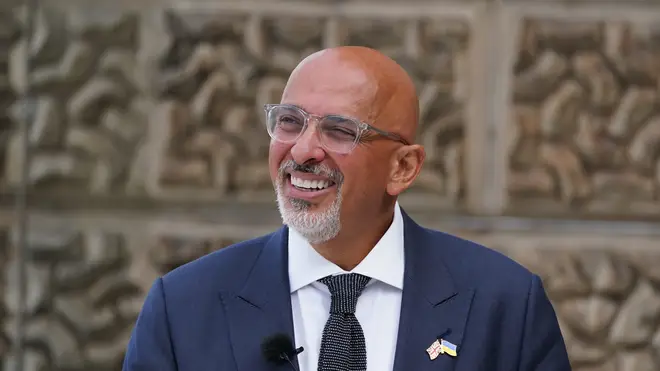
Iain Dale 7pm - 10pm
1 September 2022, 08:44

Nadhim Zahawi pledged the next Conservative government will ‘go beyond’ the support already committed and that further options are being worked on.
Chancellor Nadhim Zahawi has said “no-one should be cut off” because they cannot afford their energy bills.
The Cabinet minister also pledged that the next Conservative government, due to take over from Boris Johnson’s administration after his resignation next Tuesday, will “go beyond” the support already committed and that options for future decisions are being worked on.
His remarks come as the Resolution Foundation has warned the next prime minister’s time in office looks set to be dominated by the “terrifying” prospect of the biggest squeeze in living standards for a century.
NEW RF report by @LalithaTry & @adamcorlett – In at the deep endThe living standards crisis facing the new Prime Minister https://t.co/GcZEd2mAee
— Resolution Foundation (@resfoundation) September 1, 2022
Mr Zahawi, speaking to Sky News while on a visit to the US, was asked if he can guarantee that no-one will find themselves in a position where they are cut off because they cannot afford to pay their bills.
He said: “I’m working with the (energy) companies to make sure, and NGOs of course, to make sure those people who really are struggling get that help both financially… but the companies themselves have already started to write letters and emails to ask people if they are vulnerable, if they are feeling that they can’t pay, that they should contact their supplier, their companies.
“My pledge to your viewers is that we will deliver the £37 billion – so, that £1,200 to the most vulnerable eight million households, – but we’ll go beyond that because we know we need to, and we need to send a message to Mr (Russian President Vladimir) Putin that this strategy is not going to work.”
The Chancellor also conceded that “of course” the current level of support offered by the Government to deal with rising energy prices will not be enough, but said his team is looking at options for the next administration.
“There’s nothing off the table” in terms of options the Government is assessing for how to deal with rising energy prices, he said, but he also warned “there are no easy options”.
Asked how concerned he is that people are going to freeze this winter because they cannot afford to put their heating on, Mr Zahawi said: “I’m deeply concerned.
“Those people on pre-paid meters, that’s why I go back and say to you, my preference is targeting the help.”
A report from the Resolution Foundation warns that real household disposable incomes are on course to fall by 10% over this year and next, and that the number of people living in absolute poverty is set to rise by three million, to 14 million people in 2023-24, unless policy or economic forecasts change.
With real earnings falling at their fastest rate since 1997, the think tank also warns that, by the middle of next year, real pay growth since 2003 will be wiped out.
Without further significant interventions from Government, household incomes are on course to fall by 5% this year, and by 6% next year. This stark two year income fall – equivalent to £3,000 for the typical household – would be the deepest living standards squeeze in a century. pic.twitter.com/5LHClfdJSu
— Resolution Foundation (@resfoundation) September 1, 2022
The 10% fall in mean disposable income by 2023-24 “is likely to be the worst for at least a century”, the report says, equivalent to £3,000 for the typical household.
And the “sharp rise” in the number of people in absolute poverty, projected at more than three million between 2021-22 and 2023-24, would be the worst two-year change on record, the report warns.
Lalitha Try, a researcher at the Resolution Foundation, said: “With high inflation likely to stay with us for much of next year, the outlook for living standards is, frankly, terrifying.
“Typical households are on course to see their real incomes fall by £3,000 over the next two years – the biggest squeeze in at least a century – while three million extra people could fall into absolute poverty.
“No responsible government could accept such an outlook, so radical policy action is required to address it.”